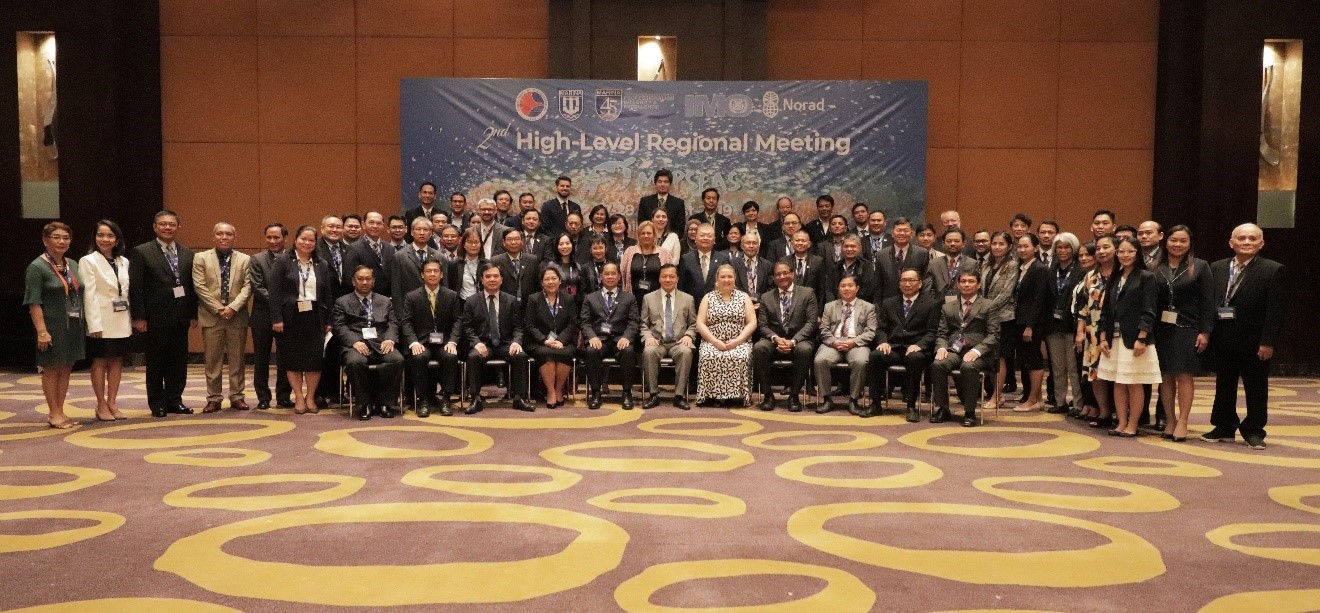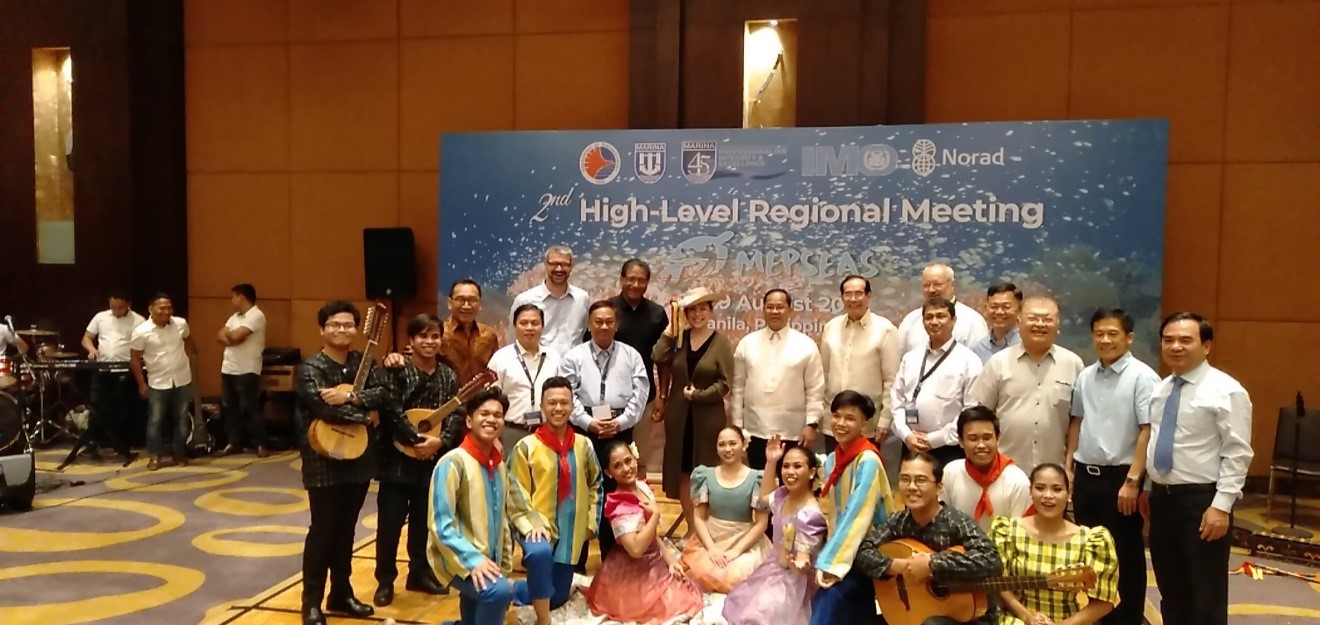Under the invitation of IMO, Technical Officer Mr. Li Fei, representing MTCC-Asia which is funded by the European Union and implemented by the International Maritime Organization (IMO) attended the Second MEPSEAS High-Level Regional Meeting, which was held from 27th to 29th August in Manila, Philippines. Representatives from the maritime authorities of seven Southeast Asian countries including Cambodia, Indonesia, Malaysia, Myanmar, Philippines, Thailand and Vietnam attended the meeting. And besides MTCC-Asia, stakeholders from the Norwegian Embassy in Manila Philippines, the Tokyo Memorandum, the WOMEN IN MARITIME (WINE) ASIA, the MARITIME AND PORT AUTHORITY SINGAPORE, the FEDERATION OF ASEAN SHIPOWNERS ASSOCIATION, the Partnerships in Environmental Management for the Seas of East Asian(PEMSEA), and the ASEAN Maritime Transport Group were invited to attend the meeting as strategic partners.
During the meeting, MEPSEAS demonstrated the achievements they’ve made in the construction of the MEPSEAS network and member states exchanged their respective progress in the legislation and implementation of maritime conventions such as ballast water and ship fouling. Subsequently, each strategic partner presented their efforts and achievements in cooperation with the MEPSEAS. And he future three-year work plan for MEPSEAS was proposed and discussed at the end of the meeting.
During the past more than two years since its establishment, MTCC-Asia has been committed to research on ship’s GHG emission control and has pushed steadily two pilot research projects and a series of capacity building activities. During the meeting, the MTCC-Asia representative was given the opportunity, under the coordination of Mr. Jose Matheickal, Deputy Director of Sub-division of Major Projects of IMO Marine Environment Division, to present the achievements and future work plan of MTCC-Asia. Under the management and support of IMO, MTCC-Asia will continue to carry out research on ship pollution prevention, strengthen the cooperation with MEPSEAS and other international organizations, build the global ship pollution monitoring, data collection and research platform, and develop standards for ship pollution prevention, emission reduction and energy efficiency management.







 Social Media
Social Media





 External link
External link




